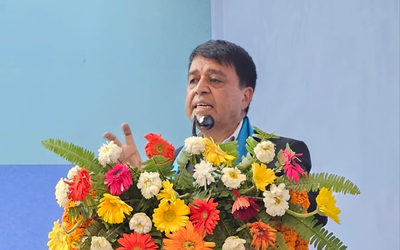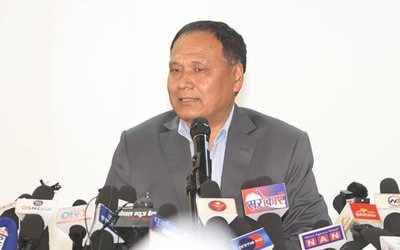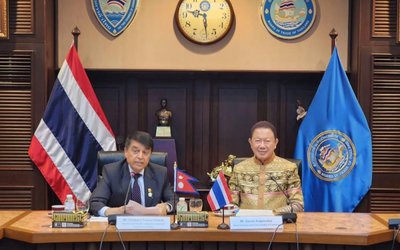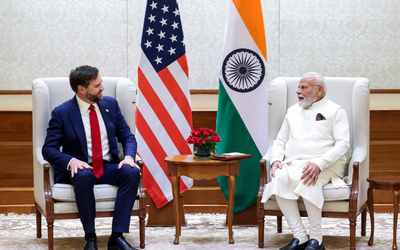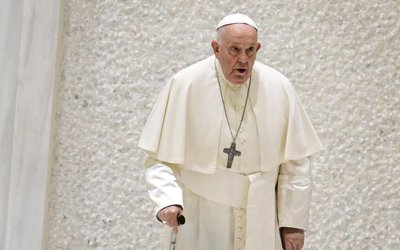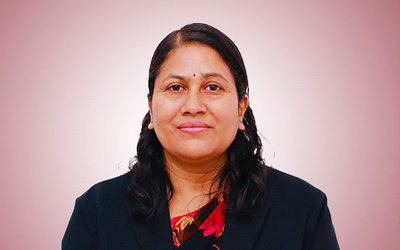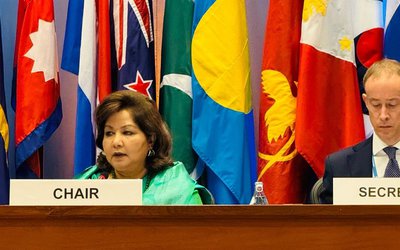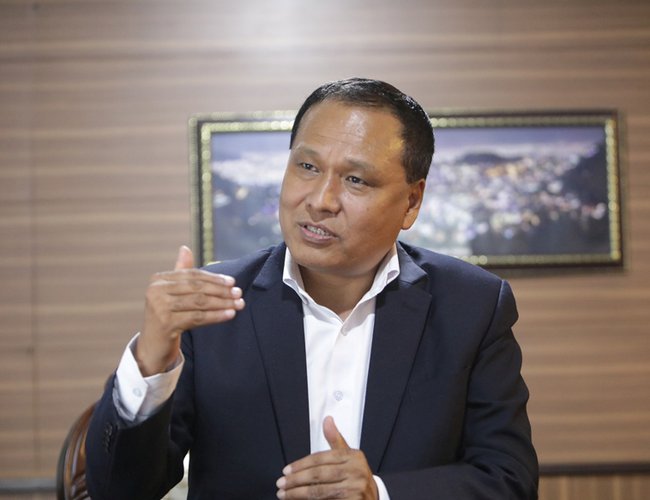
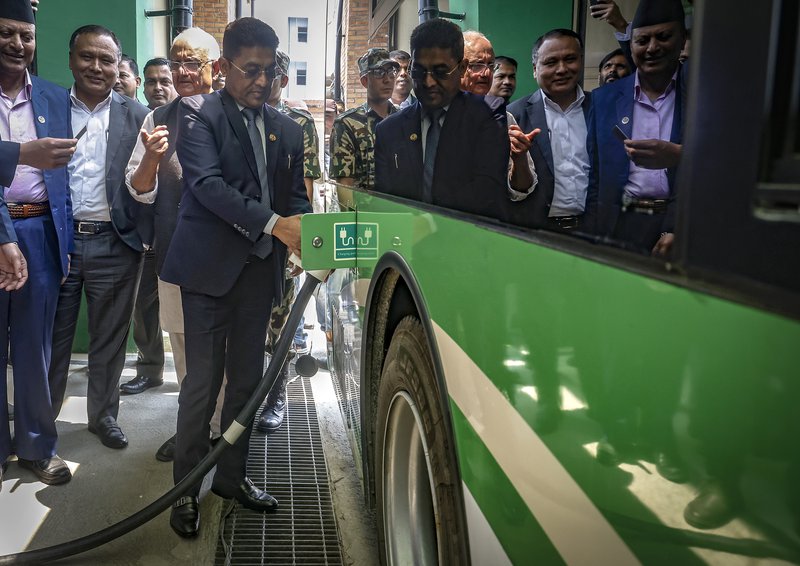
The Managing Director of Nepal Electricity Authority, Kulman Ghising, has said that over 100,000 units of electricity are consumed daily in charging stations alone. He said that the units will be much higher if units from charging at household included.
Speaking at the inauguration program of Sajha Yatayat charging station in Lalitpur, Managing Director Ghising said that around 20 million worth of diesel and petrol will be replaced by consuming 100000 units of electricity per day at the charging station alone.
He claimed that the trend of electricity consumption can replace the import of petroleum products worth Rs.500 billion in the future. He said that the demand for charging stations has increased tremendously in recent times.
MD Ghising said that there is a demand for electric charging stations from municipalities, local bodies, hospitals and private sector across the country. He said that there are more electric vehicles plying on the outer routes than in the Kathmandu Valley.
He said that there is a need for charging infrastructure to electrify public transport in Nepal. He claimed that 400 charging stations including private sector have been connected and more than a thousand microbuses are plying through charging stations across the country. MD Ghising expressed his belief that if only about 70 percent replacement is done, it will go a long way in reducing Nepal's trade deficit. He claimed that after the operation of electric buses, shared transportation will also be beneficial.
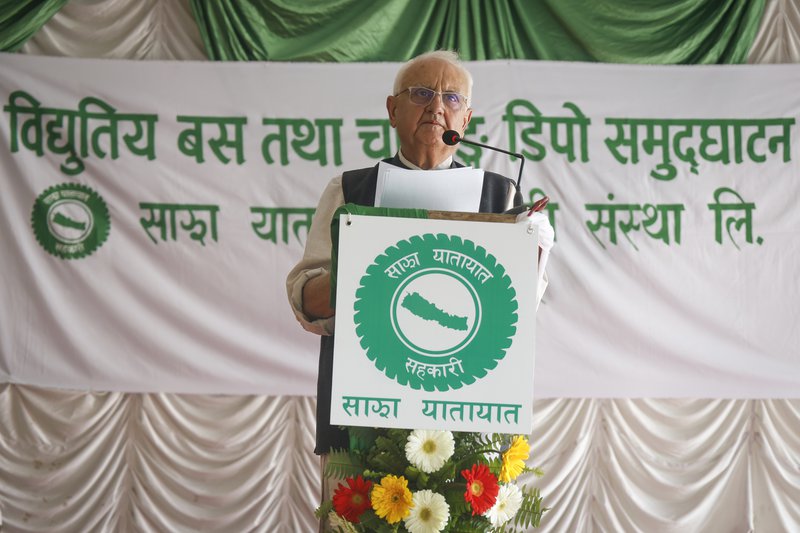
He said that electric buses are 10 to 15 times cheaper than diesel buses. He said that even if the operation is 10 times cheaper, it does not mean that it will not be beneficial. He said, "Currently, there is a demand from municipalities, local bodies, hospitals and the private sector across the country to install electric charging stations. This is important.
There are more public buses running on electricity on the outer routes than in Kathmandu. Almost all the micros run on the Dhulikhel-Bardibas route. 100,000 units are consumed daily at the charging station alone. This replaces about 20 million worth of diesel and gasoline per day.
In the program, Kanak Mani Dixit, president of Sajha Yatayat, said that as per the policy of spending the three billion rupees provided by the government in three phases, 40 electric buses and charging stations have been put into operation in the first phase.
He also informed that there are 24 charging mechanisms consuming 1.1 megawatts of electricity at the charging stations in the common premises.
He also informed that there are 24 charging mechanisms consuming 1.1 megawatts of electricity at the charging stations in the common premises.
Similarly, Dixit informed that there is a lack of space for buses to be added in the future and said that they are working with 18 municipalities in Kathmandu Valley to expand more charging stations.
He said that if public transport can be electrified, it will be transformed and without the participation of the private sector, the expansion of public transport in Nepal cannot take place. "The government should provide financial facilitation to expand the electric bus service through the private sector, which requires a large initial investment," Dixit said.
Speaking at the event, Chiribabu Maharjan, Head of Lalitpur Metropolitan City, said that after Kathmandu Metropolitan City, Lalitpur has invested a lot in public transport and that there is a plan to extend the bus service to downtown Lalitpur soon.
Deputy Prime Minister and Minister for Physical Infrastructure and Transport Raghuveer Mahaseth inaugurated the charging station at the community center in Pulchok today. Speaking at the inauguration program, Minister Mahaseth said that the government is relying on shared transport for the development of public transport. He also expressed his hope that the shared service will be more effective in the future.
- Nepal’s Snow Leopard Population Reached 397
- Apr 22, 2025
- Education Minister Bhattarai resigns from post
- Apr 22, 2025
- Foreign Minister Dr. Deuba Chaired Asia-Pacific region confronting
- Apr 21, 2025
- Nepal Electricity Authority cancels contract worth over Rs 1 billion, now electricity wires going to customers' homes are bare
- Apr 21, 2025
- Four people died in Taplejung after their vehicle caught fire after getting entangled in a live wire
- Apr 21, 2025

